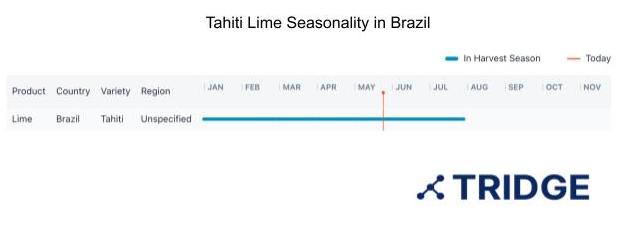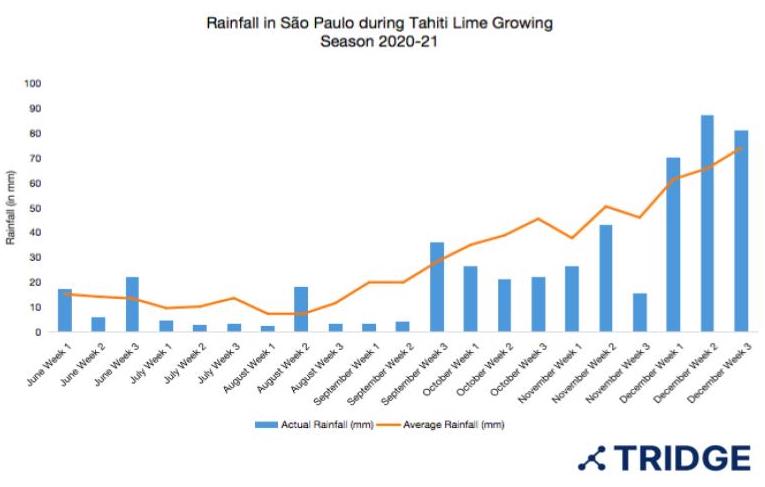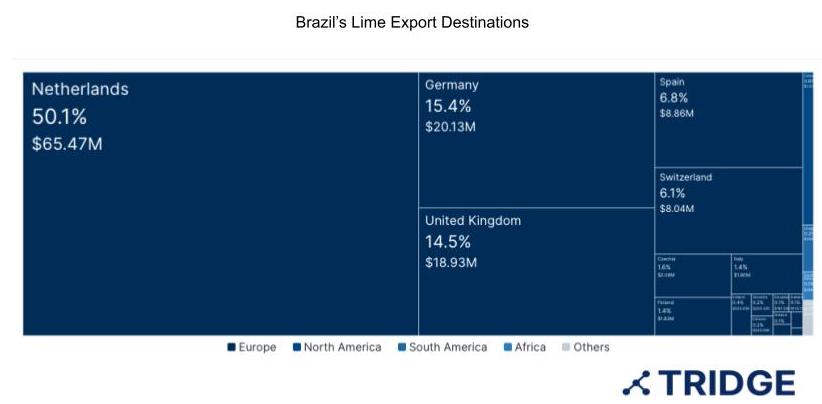Tahiti lime production falls in Brazil during 2021
Brazil is one of the leading producers and exporters of Tahiti lime in the world. The agro-climatic conditions of Brazil enable year-round production of Tahiti lime., however, the country supplies limes only from January and continues till July August. The producers prefer producing the fruit during the first half of the year as the quality deteriorates as months pass by. In 2021, Tahiti lime production is expected to drop drastically by the end of the season due to dry weather conditions during the main lime growing season. Although it was initially expected that production volumes would catch up the pace by April or May, the country continues to struggle with reduced Tahiti lime production.

Source: Tridge
One of the significant Tahiti lime-producing regions, Sao Paulo state started harvesting the citrus fruit in full swing from February 2021. However, less than average rains and higher temperatures during the primary growing season - the second half of 2020 have hampered the settlement of fruits and reduced the quantity and quality of tahiti limes. As fewer limes are produced due to the environmental issue, Tahiti lime price is highly likely to increase in the coming weeks in the domestic market and the global market.

Source: VAP.
European countries import a high volume of limes every year from developing countries like Brazil and Mexico. They are commonly used as a food ingredient and in drinks in households and the hospitality industry. The demand for limes decreased temporarily at the end of 2020 (or the beginning of 2021) due to lockdown measures and social distancing in countries across the EU. The demand started to bounce up again recently as the countries are relaxing their lockdown measurement. However, as the quality and quantity of Tahiti limes from Brazil are deteriorated due to less rain in the last season, it will be hard for Brazilian limes to penetrate the European market again.

Source: Tridge
Particularly, the harvested limes are smaller-sized and have not reached the ideal maturation stage yet due to the dry weather conditions making them non-competitive in the global market. Therefore, the local farmers were forced to sell them in the domestic Brazilian market, where the domestic prices are pretty attractive due to a shortage in limes. According to Francielle Rozzatti, RegionalManager at Tridge in Brazil, Mexico will start harvesting the new lemon crop soon, which could further affect the competitiveness of Brazilian limes in the international market.



